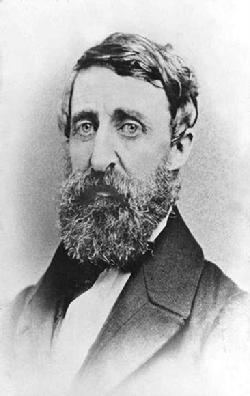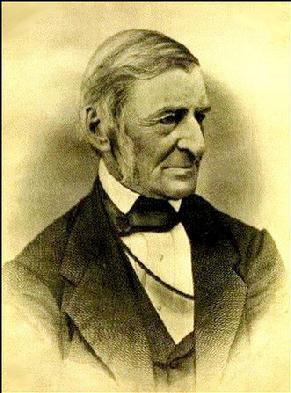| American Transcendentalism |
"There are always two parties:
the establishment and the movement."
"Conservatism makes no poetry, breathes no prayer, has no invention; it is all memory."
Ralph Waldo Emerson (1803 - 1882)
|
|
| No study of American political and spiritual evolution is complete without an understanding of the Transcendental movement, yet this vital chapter of American history is given short shrift in school. And, no wonder.
The spirit of Transcendentalism runs contrary to our modern corporate-created, anti-rural-values society that channels us toward seeking happiness by accumulating things (go shopping!) and valuing the superficial (look younger! look richer! look thinner!), nor does it have much in common with today's "Jesus would wear a Rolex" brand of materialism-celebrating mega-churches.
The highly influential thinkers and writers of the Transcendental Movement personified America's true rural values. They were honorable descendants of the America's Founding Thinkers, further illuminating America's way by carrying the torch of spiritual and intellectual liberty towards a more progressive future.
|
|
| American Transcendentalism refers to a group of new ideas in literature and philosophy that emerged in New England in the early-to-middle 1800's. The movement began in the 1830's as a protest against the general state of culture and society, and in particular, the state of intellectualism at Harvard University and specifically Harvard Divinity School.
Among transcendentalists' core beliefs was the belief in an ideal spiritual state that transcends the physical and empirical, and is realized only through the individual's intuition, rather than through the doctrines of established religions.
Well known figures in the movement included Ralph Waldo Emerson (NATURE), Walt Whitman (LEAVES OF GRASS), Margaret Fuller, Amos Bronson Alcott and Louisa May Alcott (LITTLE WOMEN).
Probably the most famous was Henry David Thoreau (1817-1862). His WALDEN used to be required reading in schools (hopefully still is). He also wrote CIVIL DISOBEDIENCE. His writings influenced many, including Mahatma Ghandi, John F. Kennedy, Leo Tolstoy and Martin Luther King, Jr.
|
 |
| Thoreau |
|
|
Martin Luther King, Jr. wrote in his autobiography:
I became convinced that noncooperation with evil is as much a moral obligation as is cooperation with good. No other person has been more eloquent and passionate in getting this idea across than Henry David Thoreau.
As a result of his writings and personal witness, we are the heirs of a legacy of creative protest. The teachings of Thoreau came alive in our civil rights movement; indeed, they are more alive than ever before.
Whether expressed in a sit-in at lunch counters, a freedom ride into Mississippi, a peaceful protest in Albany, Georgia, a bus boycott in Montgomery, Alabama, these are outgrowths of Thoreau's insistence that evil must be resisted and that no moral man can patiently adjust to injustice.
|
 |
| Emerson |
|
| Eminently Quotable Emerson
The god of the cannibals will be a cannibal, of the crusaders a crusader, and of the merchants a merchant.
The louder the lawyer talked of his honor, the faster we counted our spoons.
A foolish consistency is the hobgoblin of little minds, adored by little statesman and philosophers and divines. With consistency a great soul has simply nothing to do.
The reward of a thing well done, is to have done it.
A chief event of life is a day in which we have encountered a mind that startled us.
What is a weed? A plant whose virtues have not been discovered.
Finish each day and be done with it. You have done what you could; some blunders and absurdities have crept in; forget them as soon as you can. Tomorrow is a new day; you shall begin it serenely and with too high a spirit to be encumbered with your old nonsense.
|
Do have a favorite Transcendental author or quote? Please share who, what and why.
Send your response to editor@ruralvalues.org
|
|